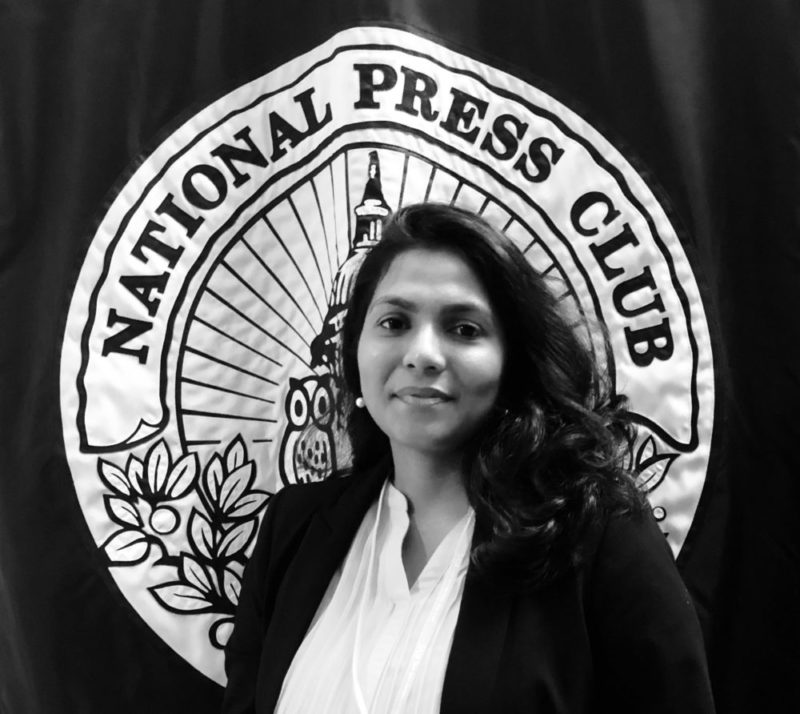CAMD alumna Shraddha Kakade, who recently graduated with her Master of Arts in Journalism, has been awarded the top prize in the South Asian Journalists Association (SAJA) contest for “Outstanding story on any subject by a South Asian student in the US or Canada.” Shraddha won for a paper she wrote in School of Journalism faculty Dan Kennedy’s graduate Ethics and Media seminar, which was later published at Poynter Online.
“I was absolutely thrilled to learn that I had been honored with this prize,” Shraddha said. “It felt great to have my existing work recognized, and it gave me the encouragement to know I am on the right path with my writing.”
The piece, which ran last fall, explored a controversial legal case in India that centered on ethical questions around journalistic sting operations.
In 2017, an Indian journalist was facing criminal charges after a soldier she interviewed – filming the conversation via a hidden camera without his knowledge – committed suicide. She was working undercover, with the assistance of war veteran, to expose the misuse of the “sahayak” (buddy) system in the Indian Army. While this system is intended to provide support to senior army officers allowing them to focus on their military duties, in some cases, it translates into sahayaks performing menial tasks far outside the job description.
When the secretly-recorded video was published, although it attempted to blur the subject, some news reports that claimed the soldier, who was recounting the personal chores he had been made to do, was recognizable through body built and voice. Indian Army officials asserted the journalist’s actions directly led to his suicide, while the journalist and soldier’s family allege that that he was killed.
“The reason I chose this topic to research for the Ethics and Media class was because it was a top news story in India at the time, and it addressed both the questions of journalistic ethics in undercover reporting as well as India’s freedom of press,” Shraddha explained. “I recognized this topic as an opportunity to do original reporting on an important and timely issue.”
Shraddha interviewed senior journalist in Mumbai and went through the Network of Women in Media (NWIM) letters to various government authorities in India as she investigated the story first-hand.
“Most people felt that the criminal charges that were levelled against the reporter were not reasonable especially the provisions of colonial era Official Secrets Act,” Shraddha said. “There were likely many triggers that could have led to the soldier’s death, and there were even questions about whether or not it was a suicide.”
The case was ultimately brought to the Bombay High Court, which released the journalists on an anticipatory bail order, ruling that the case did not attract criminal charges brought under Indian Penal Code and Officials Secret Act (OSA) . The Justice/Judge determined that the objective of the reporting, despite the tragedy, was to expose the wrongdoing within the Indian army and merely because the sting was done in a prohibited [Indian Army] area it cannot automatically attract provisions under OSA.
“Undercover is always a bit contested, and the style of journalism often leads to ethical dilemmas,” Shraddha described. “In this case, I think the operation was well-intentioned, but ethically, not the best choice.”
Shraddha points out that it is important for journalists to be careful not to target the whistleblower when embarking on this type of reporting.
“Unfortunately, the life of the victim himself, who was coming out to share his story, became a tragedy,” she said. “We were able to shed light on the wrongdoing, but we lost someone in the process.”
Read the full story here. Congratulations, Shraddha, on your excellent reporting being recognized by the South Asian Journalists Association!


